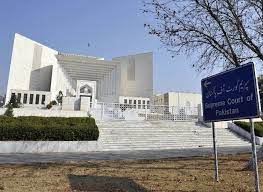Recently, the Supreme Court of Pakistan has sought a progress report from the Election Commission of Pakistan (ECP) regarding the technical and legal aspects concerning overseas Pakistanis’ right to vote in the upcoming general election in the country. According to the details, a three-member bench of the apex court is currently hearing the pleas of the Pakistan Tehreek-e-Insaf (PTI) and Pakistan Awami Muslim League (AML) seeking a declaration for ex-pats’ rights to vote in the future general elections.
Overseas Pakistanis are an important asset of Pakistan which always played a vital role in national building, economic development, and growth, along with rendering all possible assistance in achieving foreign policy objectives in other nations.
Similarly, well-off overseas Pakistanis stood by their countrymen during the wars, natural calamities, and economic challenges in the past. Presently, over 9 million Pakistanis are residing abroad in the Middle East, America, Europe, East Asia, and Oceania, who pleasure and grief with their countrymen and tremendously contribute to national growth by sending foreign remittances of an average rate of $ 2 billion per month that help supports Pakistan’s budgetary needs during this highly volatile period of time.
Over the decades, Pakistani expatriates could not participate in the electoral process and never exercised their right to vote because of no provision of the Internet and electronic voting mechanisms in the past. However, with the invention of Electronic Voting Machines (EVMs) and the availability of Internet voting facilities, multiple nations across the globe are successfully using these technologies to facilitate public participation in the democratic process. Presently, Electronic Voting Machines (EVMs) are widely used in most nations of the world including the US, the UK, Canada, France, German, Kenya, the Philippines, Australia, and several others to ensure transparency and strengthen public belief in democracy.
Unfortunately, this legal and technical issue had been made a political dispute by contesting political groups in the country. Pakistan’s election Act-2017 categorically endorsed the overseas Pakistanis’ right to vote but it could not be materialized in the past due to the non-availability of necessary infrastructure, and institutional provisions. Later, the PTI government approved the legislation for the use of EVMs and I-voting for overseas Pakistanis through a constitutional amendment in 2021.
Last year, the coalition government overrode the Election Amendment Act-2021 and approved new legislation namely Election Amendment Bill-2022 calling for organizing pilot projects on the use of EVMs and Internet voting in the upcoming general election to confirm their validity ahead of full implementation of the new technology.
In fact, both political factions support the idea of overseas Pakistanis’ right to vote but each of them wanted to earn credit for this magnificent endeavor, meanwhile, the coalition parties also fear a political setback due to PTI’s substantial presence abroad. Presently, a court battle is continuing, and both factions are focused on reaffirming their political gains in the upcoming general elections either way instead of securing the fundamental rights of the expatriates. At the time, multiple African nations are using modern technologies and EVMs to augment public belief in the electoral process but Pakistani leaders run out of patience and are embattled for instant political gains.
Seemingly, electoral victory and setbacks are part of politics but leaders must act in the greater interests of the country, public, and democracy that will improve their public image and support their politics in the future.







